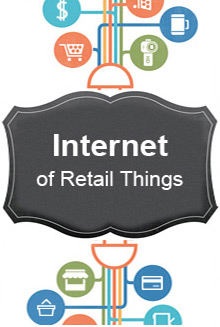Today, being happy at work is no longer a luxury. It is a necessity! Everyone wants to find a job they love, be happy at work, and create a great workplace. Can we create workplaces where happiness is the norm, not the exception? The answer is a resounding YES.
Why is Happiness important?
The IT Services industry is essentially a knowledge industry that offers the opportunity to celebrate and harness our intellectual capabilities while creating economic benefits for ourselves, our customers and society. Our minds work better while we are happier and at peace.
This is substantiated by an abundance of research that increasingly points to the fact that happy people are ‘better workers.’ Happy employees are more sensitive to opportunities in the work environment, more outgoing and helpful to co-workers, and more optimistic and confident — all of which are positive features for the organization.
It has also been found that in order to have happy, satisfied and loyal customers; organizations should have happy, satisfied and loyal employees. Even with teams that do not have direct contact with customers, there was a positive association between how employees feel and customer attitudes.
A study published in the University of Warwick’s Economic Research Institute Journal revealed that “human happiness has large and positive causal effects on productivity.” Organizations that address the issue of employee happiness can directly impact its bottom line needs.
Culture of Happiness Evangelism
With a simple, yet, lofty mission of “Happiest People . Happiest Customers”, Happiest Minds, a digital transformation company, focuses on the twin themes of disruptive technologies and people happiness. Our name reflects our mission and is indicative of the culture that we are building,
Happiest Minds is a pioneer in the creation of the role of a Happiness Evangelist, someone whose role is to sensitize each Happiest Mind to the Happiness Agenda; synthesize the tenets of happiness into organizational practices; and assess the effectiveness of people practices through Happ’o’meters.
In addition, one of our five year vision components states that all Happiest Minds are to be Happiness Evangelists for one another, our customers and society.
Happiness Evangelism, therefore becomes an imperative and a responsibility for all Happiest Minds and an effective way to foster cultural change.
Who then is a Happiness Evangelist?
A Happiness Evangelist is one who: looks for opportunities to appreciate others genuinely; listens with empathy; strives to increase harmony and collaboration; is polite and courteous; displays kindness & concern for others; is willing to help others; encourages new thoughts and ideas, even if they are not aligned with his/ her own; is willing to share knowledge; cultivates the culture of WE instead of I; displays calmness in challenging situations; Goes the extra mile to keep the customer (internal/external) happy; and has a high commitment to results.
So how can workplace happiness be enabled? The three C’s will help:
Cultivate a sense of meaning and purpose – Rosabeth Kanter, Professor, Harvard University wrote that people want to work for companies where they feel they are making a meaningful difference in the world. People want to feel as if their work matters, and that their contributions help to achieve something really important. People who believe in what they are doing are happier, more motivated, and more productive.
Create a collaborative community – Community at Happiest Minds fosters a work environment that encourages mutual respect and sensitivity. You like the community and the community likes you. This creates a sense of belongingness, respect and pride – which leads to employees taking on more responsibility. Close, trusting and supportive relationships are hugely important to one’s state of mind and their willingness contribute to a team.
Capacity to make choices – People like to have a say in shaping their workday and controlling their own destiny. “We found that knowledge workers whose companies allow them to help decide when, where, and how they work were more likely to be satisfied with their jobs, performed better, and viewed their company as more innovative than competitors that didn’t offer such choices,” wrote Diane Hoskins in the Harvard Business Review.
It is a matter of pride for us at Happiest Minds to see the impact we have made on the lives of our people by cultivating a sense of meaning and purpose, creating a collaborative community and building the capacity to make choices.
In Conclusion
The impact of happy employees on an organization is dramatic. We need organizations that create satisfied and happy employees who can help create resilient companies – ones that can withstand the challenges of an ever changing, increasingly competitive marketplace.
Leaders need to harness the power of happiness. If the employees are happy, chances are they will stay — physically and psychologically — with the job and with the organization, leading to improved performance and service, and more loyal customers.
And that is powerful.

is the Vice President & Happiness Evangelist at Happiest Minds Technologies. She believes that happiness enabling practices must be built on strong conceptual frameworks and that happiness and mindfulness enabling strategies must filter throughout the organization across its business operations.
She has been with Happiest Minds since its inception in Aug 2011. Prior to Happiest Minds, she has been with Corporate for 6 years and moved into Academics, where she has been a Professor for 10 years with Christ University Institute of Management and for 4 years with Bharathidasan Institute of Management, Tiruchirapalli as Professor and PGP Chairperson.
Sharon has hosted and participated in various workshops and seminars throughout the country. She holds a PhD in the area of Servant-Leadership, an MPhil in Entrepreneurship and an MBA from Bharathidasan Institute of Management, Tiruchirapalli.
Sharon’s interests are in mentoring, counselling and recently, painting.






